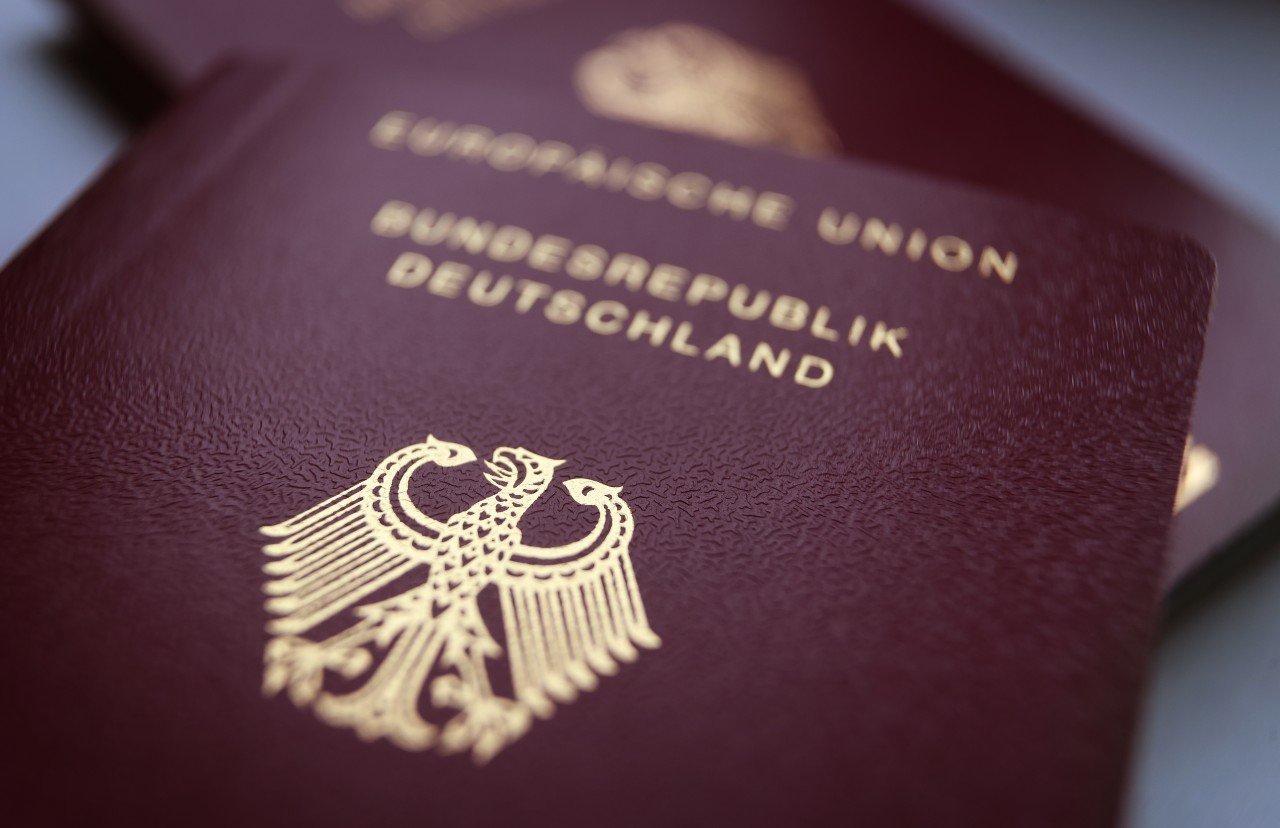When it comes to integrating as a foreigner in Germany, there’s no bigger prize than a German passport.
For some, it’s chance to finally have a say in the country’s future by voting; for others, the right to live and work in the EU. For many, it’s the ability to stand shoulder to shoulder with Germans and finally enjoy the same rights and recognition as they do.
Everyone’s reasons for deciding to become German may be different, but what’s clear is that the trend is on the up: according to the Statisches Bundesamt (Destatis), 200,100 people naturalised as Germans in 2023, up from 168,500 the year before.
Since 2021, when around 131,000 people naturalised, the numbers have jumped by almost fifty percent. Last year’s figures are the highest they’ve been since records began in 2000.
When the new dual nationality law comes into force on June 27th, of course, the authorities are expecting a huge influx of applications this year that could dwarf anything we’ve seen before. Until then, many foreigners are simply waiting impatiently for the rules to change.
But first, here are some details about the latest group of new Germans.
Where do the majority of new Germans come from?
Somewhat impressively, people from 157 different countries decided to become German in 2023, according to the statistics.
However, by far the largest group were people with a Syrian passport. An astounding 75,500 Syrians gained German citizenship last year — an increase of 27,100 compared with 2022.
Advertisement
This likely has a lot to do with the fact that many refugees who came to Germany between 2014 and 2016 have suddenly become eligible for naturalisation over the past few years: since 2021, the number of Syrians naturalising has increased more than tenfold.
Alongside Syrians, people from Türkiye, Iraq, Romania and Afghanistan made up the largest bloc, with 35,000 applicants from these four countries alone. However, the number of Turks becoming German has slipped dramatically in recent years, and at 10,735, last year was the lowest it has been since records began.
In total, 31,310 people with EU passports received German citizenship, most commonly from Greece, Bulgaria, Italy and Poland, as well as Romania.

Germany’s passport. Photo: picture alliance/dpa | Karl-Josef Hildenbrand
Outside the EU but within Europe, there was a jump in the number of Ukrainians who applied for German citizenship. Last year, around 5,900 Ukrainians naturalised as Germans – triple the number that naturalised in 2021 before the start of Russia’s full-scale attack on the country.
Brits and Russians also constituted small but significant groups last year, with 1,310 and 1,995 naturalising from these countries respectively.
Meanwhile, just over 3,400 Indians became German last year, along with around 6,300 people from both North and South America.
READ ALSO: Why are so many people becoming German citizens?
Advertisement
A look at the group’s demographics
At 29.3, the average of age of the new cohort of Germans in 2023 skews younger than the average German at 44.6.
The average age of Syrian refugees was even younger at 24.5, and 64 percent of Syrians who became German were men.
Out of all the foreigners who naturalised last year, there were slightly more men than women: 55 percent to 45.
On average, people had spent 6.8 years in the country when they received their German passport: a figure that makes a lot of sense when you consider that the normal residence requirements span from six years with B2 German to eight years with B1 (though of course this will all change in June).
READ ALSO: What you need to know about Germany’s citizenship law reform
Did they all give up their previous passports?
In most cases the newly naturalised citizens didn’t give up the passports to their home countrys, but some certainly did.
Germany has some important exceptions written into its current rules around dual nationality: refugees and people from an EU country – to name two key examples – don’t have to shed other nationalities when naturalising as German.
So in most cases, people from Syria, Iraq and Afghanistan would be allowed to keep their previous passports when becoming German, as would Romanians, Bulgarians, Italians, Poles and Greeks.
Advertisement
For the Turkish community in Germany, the ban on dual nationality usually does apply – which may explain the 25 percent drop-off in citizenship applications ahead of the ban being lifted this year. In other words, many of the Turkish diaspora in Germany may well be biding their time and waiting for the law to change, just like many Americans, Brits and other non-EU citizens.
READ ALSO: When and how can I apply for German citizenship?
Where do they live?
The vast majority of people who naturalised as German last year live in the populous state of North Rhine-Westphalia, with more than a quarter of all naturalisations – 51,185 – coming out of this region.
This was followed by 36,105 in Bavaria, 22,745 in Baden-Württemberg, 16,870 in Lower Saxony and 15,115 in Hesse.
In terms of the city states, 9,040 people naturalised as German in Berlin, 7,540 naturalised in Hamburg and 4,580 naturalised in Bremen.
Meanwhile, at the lowest end of the spectrum, just 1,605 foreigners gained a German passport in the eastern state of Thuringia, followed by 1,625 in the north-eastern state of Mecklenburg Western-Pomerania.
Read More: World News | Entertainment News | Celeb News
Locals









